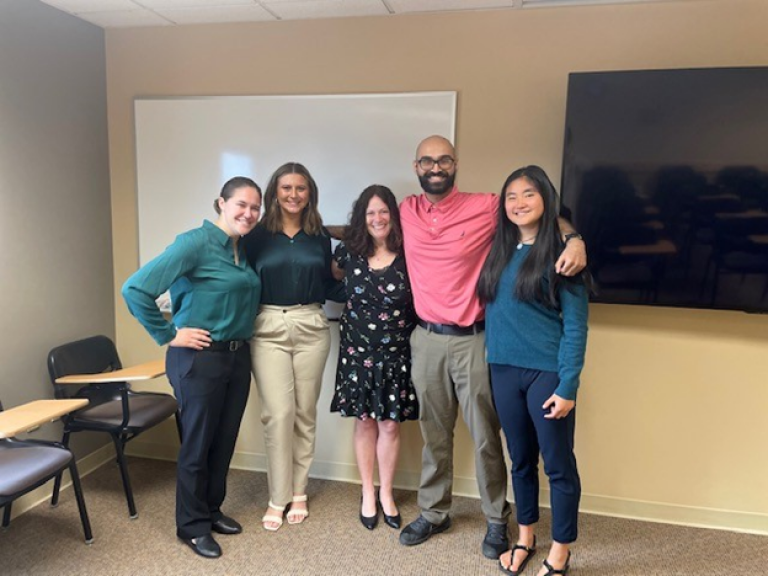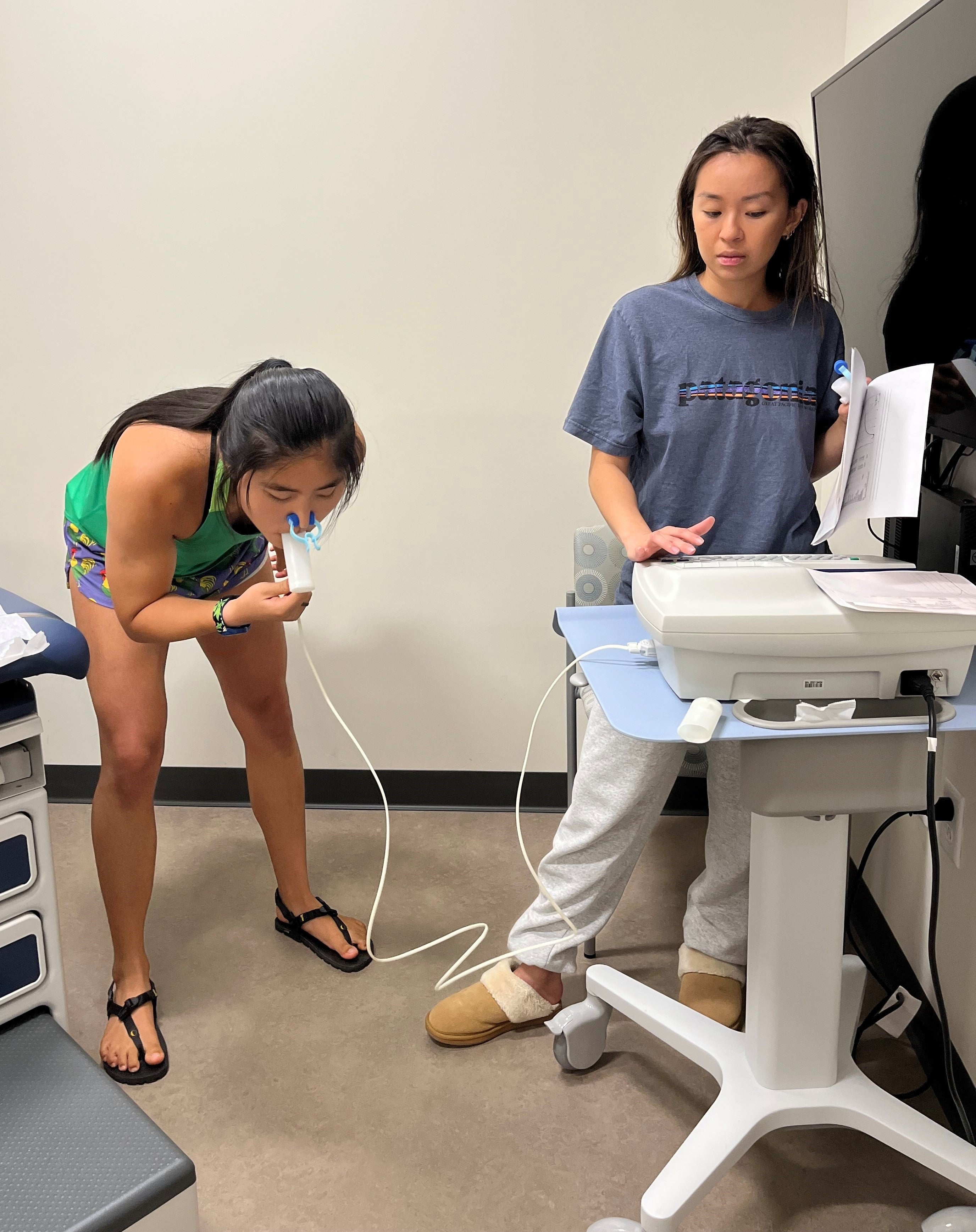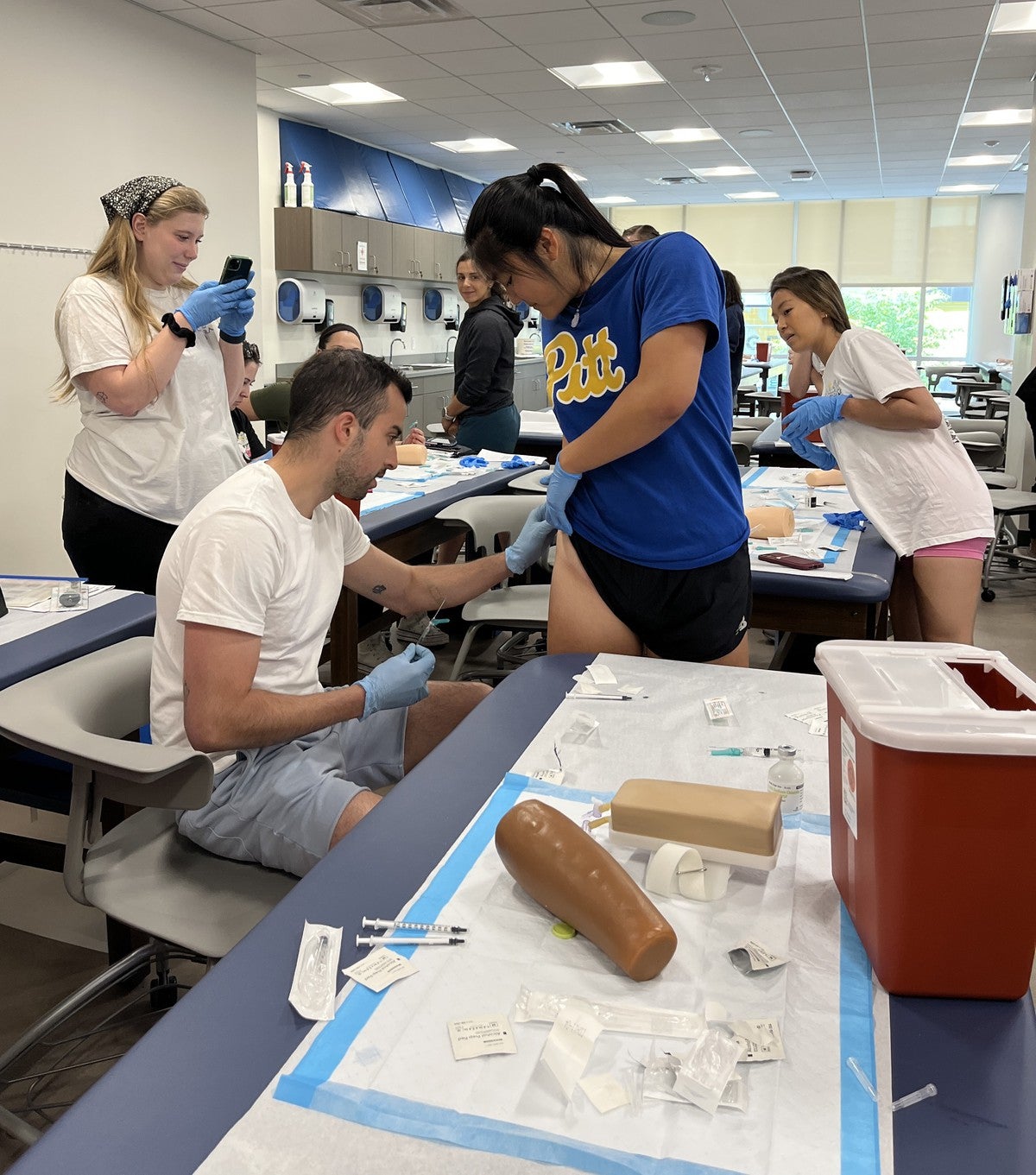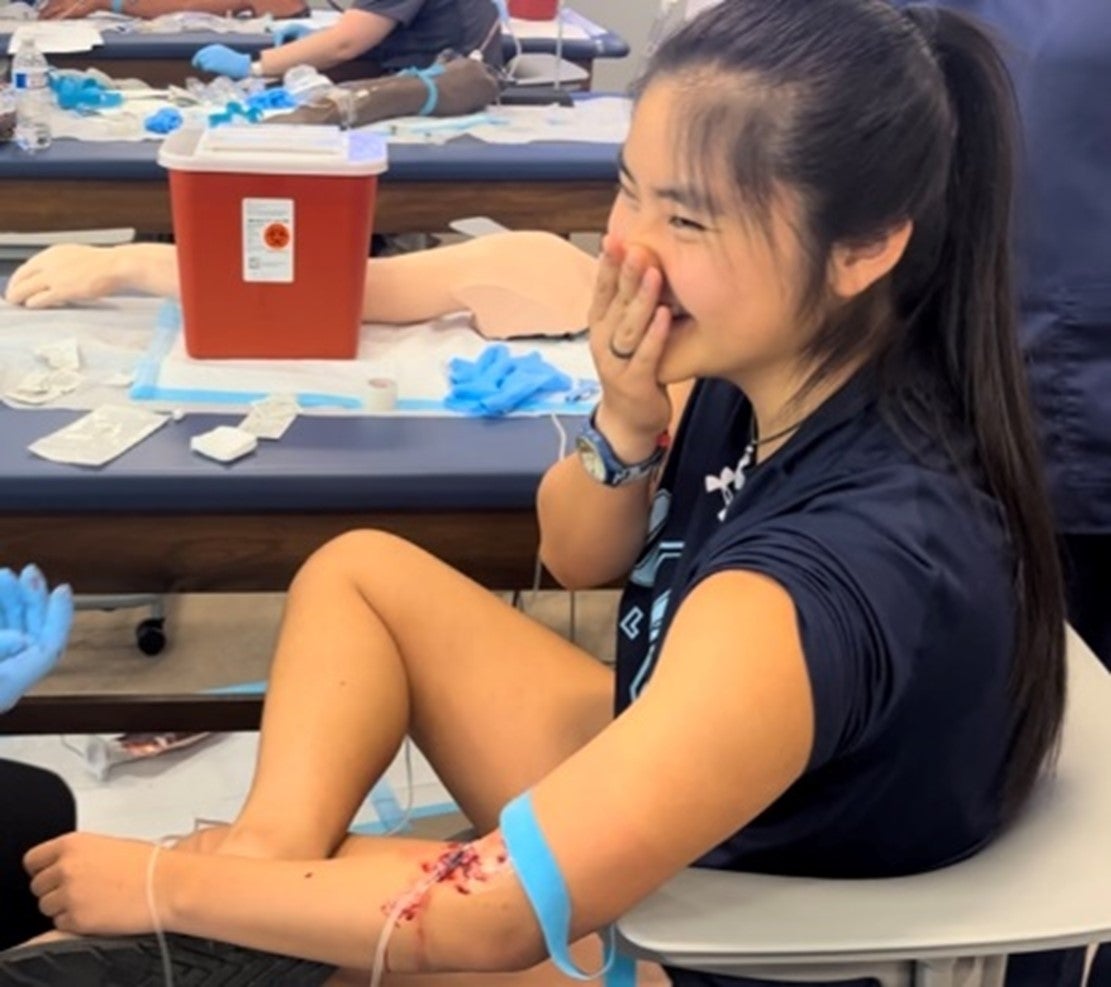
Nutrition Science class of 2022 and Nutrition Science Program Director Lori Cherok (center)
I applied for the University of Pittsburgh Bachelor of Science in Nutrition Science program on the last day that applications were open! It was a lazy summer day, and I’d been lingering around the School of Health and Rehabilitation Sciences (SHRS) website, rather clueless about what major I’d pursue, but knew that I was “pre-Physician Assistant (PA)” and working to fulfill those prerequisites. The Nutrition Science program was rather a spur-of-the-moment decision, but it wasn’t arbitrary and also happened to be a very correct one.
The Bachelor of Science in Nutrition Science (NSBS) is a pretty new program, and I first heard of it when listening to a presentation during a group check-in for Pitt’s guaranteed admissions program for PA school. The presenter was none other than my future advisor, Nutrition Science Program Director Lori Cherok. I was a wide-eyed freshman with little direction as to what major I ought to pursue to get myself to the finish line of PA school. Though I admittedly went mainly for the free lunch, that afternoon proved fruitful in planting several seeds of options for potential majors that would suit my educational position.
My interest in nutrition stems strongly from being a runner, as well as being raised by Chinese parents who made home-cooked meals every day. We grew a garden in our backyard and the house was filled with plants. I never really knew what the average American family ate as meals because I was raised in this ethnic bubble. Interestingly, this gave me a different perspective when learning about nutrition and logging different foods, as many of the ethnic foodstuffs I knew so well and grew up with were not in general databases and couldn’t easily be calculated. Thus, I learned (and will continually be learning) the importance of cultural awareness in patient-centered care.
The Advantages of a Small Program
Because this was only the second year of the program, my undergraduate class ended up being very small—just four students including me. I found this very refreshing, as everyone knew each other and the professors very well. Our advisor, Assistant Professor Lori Cherok, got to know us all personally and was very aware of our progress in coursework and our own individual goals after the undergraduate program. The NSBS shares many classes with the Dietitian Nutritionist program, but the difference is that the latter group of students continue for another year to complete the coursework and experiential learning to become a Registered Dietitian Nutritionist (RDN). The unique thing about the NSBS is that in the last semester, we have a block for “practical experience,” where we are able to gain experience related to nutrition science or our professional goals. In my class, three of us were planning on going into health professions, and I got to shadow a PA at the UPMC Hillman Cancer Center, which I found to be very helpful in getting a feel for what my future could look like.

Angie Wu (left) with fellow PAS student Tracy Vu measuring spirometry
Reflections of Nutrition Science as a First-Year PA Student
Currently, I am almost through my first year of PA school at Pitt and I have come to appreciate how relatively smooth my path has been. While the easy paths aren’t necessarily the right ones, I am able to look back and see how the reasonable course load of the NSBS allowed me to continue nurturing my hobbies and taking care of myself. Outside of class, I had the time to train for a marathon, work 14 hours a week (which helped fulfill patient care hour requirements for PA school), go swing dancing, and do a lot of reading and writing, among other things. I think it’s important to make the most of the undergraduate years. In PA school, time is at an ultimate premium and many of my passions have had to be put on hold, but I’m glad that I fostered them in the years prior.
PAs usually work in large health care teams, and depending on the setting and specialty, a Registered Dietitian Nutritionist is part of this team. I have a stronger understanding of this role with the things that I have learned in the NSBS, which is helpful down the line. One of the classes in the program, Nutrition Therapy, I found particularly interesting, as we learned nutritional approaches as a component of treatment to many conditions, from common to more obscure. While I won’t pretend that I’ve retained all of the information at present, its useful roots still have their hold on me. In the PAS curriculum, we learn about lifestyle interventions for patients, but more heavily of pharmacologic and procedural treatments, or recognizing that a condition is serious enough to refer the patient to more specialized care.

Pitt PAS students giving and receiving ventrogluteal injections
Another undergraduate class that has helped me is Introduction to Research. While reading research doesn’t sound fun to most people (including me), being able to interpret it and point out its biases and shortcomings is such an important skill to have, especially as an individual in the health sciences. The best treatments for patients are constantly in development, and studies are continually being conducted to find the answers. With all the information tossed around on the internet, being able to fact-check and assess the strength of a source is a valuable tool to better inform oneself, as well as those around us and the patients we may one day serve.
I hope to spread some awareness for this great program! It gives a different angle of information in the health care setting and dips into the importance of social work and outreach for patients who could benefit from it. It’s a very practical major as a stepping stone into a graduate health program, like PA school, and it’s gotten me right where I wanted to be.
------------
To learn more about the Bachelor of Science in Nutrition Science program, check out our webpage or contact Program Director Lori Cherok at lcherok@pitt.edu.
---
Written by:

Angie Wu (NS ’22, PAS ‘24)
Published September 27, 2023
Updated October 5, 2023
